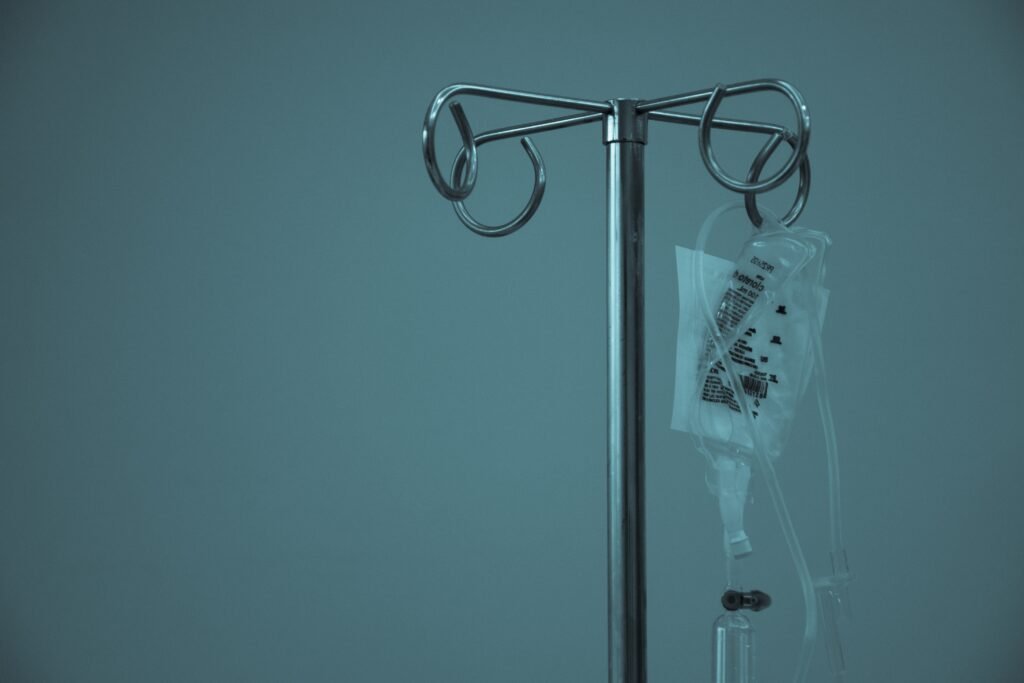So you’ve heard about kidney stones, but have you ever wondered what causes them? Well, one type of kidney stone that you may not be so familiar with is the oxalate kidney stone. These little troublemakers are formed when oxalate, a compound found in many foods, binds with calcium in your urine. As a result, a solid crystal forms in your kidney, causing severe pain and discomfort. In this article, we will explore the causes, symptoms, and treatment options for oxalate kidney stones, so you can better understand and manage this common condition. Oxalate kidney stones are a common condition that can cause severe pain and discomfort. Understanding the causes, symptoms, diagnosis, prevention, treatment, complications, dietary recommendations, medical treatments, lifestyle changes, and home remedies associated with this condition can help you effectively manage and prevent the formation of oxalate kidney stones.

This image is property of images.unsplash.com.
Causes
There are several factors that can contribute to the formation of oxalate kidney stones. One of the main causes is a high oxalate diet. Oxalate is a substance found in many foods, including spinach, rhubarb, and peanuts. When consumed in excess, oxalate can combine with calcium in the kidneys to form stones.
Low calcium levels in the diet can also increase the risk of oxalate kidney stones. Calcium helps to bind with oxalate in the digestive system, preventing it from being absorbed into the bloodstream and excreted in the urine. Without enough calcium, oxalate can easily build up and form stones.
Digestive disorders, such as Crohn’s disease or gastric bypass surgery, can also contribute to the development of oxalate kidney stones. These conditions can interfere with the absorption of calcium and increase oxalate levels in the urine.
Genetic factors can play a role in the formation of oxalate kidney stones as well. Some individuals may have a genetic predisposition that affects how their bodies metabolize oxalate, leading to an increased risk of stone formation.
Certain medical conditions, such as hyperoxaluria or primary hyperoxaluria, can also increase the risk of oxalate kidney stones. These conditions are characterized by high levels of oxalate in the urine, which can readily combine with calcium and form stones.
Symptoms
The symptoms of oxalate kidney stones can vary, but they often include severe pain in the back, sides, or lower abdomen. This pain, often referred to as renal colic, can be excruciating and may come in waves.
Blood in the urine, also known as hematuria, is another common symptom of oxalate kidney stones. The presence of blood can give the urine a pink, red, or brownish color.
Frequent urination is another symptom that may be experienced by individuals with oxalate kidney stones. The urge to urinate may be stronger and more frequent than usual.
Cloudy or foul-smelling urine may also be present in individuals with oxalate kidney stones. This is a result of the minerals and waste products that can accumulate in the urine due to the stone formation.
Nausea and vomiting can occur as a result of the severe pain associated with oxalate kidney stones. These symptoms may be more pronounced if the stone is causing a blockage in the urinary tract.

This image is property of images.unsplash.com.
Diagnosis
To diagnose oxalate kidney stones, your healthcare provider will first take a detailed medical history, asking about your symptoms, past medical conditions, and family history of kidney stones.
A physical examination may be performed to assess any tenderness or swelling in the abdomen or back, which can be indicative of kidney stones.
Urinalysis is a key diagnostic test for oxalate kidney stones. It involves analyzing a urine sample to check for the presence of oxalate crystals or any other abnormalities.
Blood tests may also be conducted to assess kidney function and to check for the levels of calcium, uric acid, and other substances in the blood that could contribute to stone formation.
Imaging tests, such as a CT scan or an ultrasound, are usually performed to visualize the kidneys and identify the presence of kidney stones. These tests can also help determine the size and location of the stones.
Prevention
Preventing the formation of oxalate kidney stones is essential to avoid the pain and potential complications associated with this condition. Here are some effective prevention strategies:
- Drink plenty of water to stay adequately hydrated. This helps dilute the urine and prevents the concentration of minerals that can lead to stone formation.
- Limit oxalate-rich foods in your diet. While it’s not necessary to completely eliminate these foods, reducing the consumption of spinach, rhubarb, nuts, and chocolate, among others, can lower your oxalate intake.
- Increase calcium intake through dairy products, tofu, and leafy greens. Adequate calcium levels can help bind with oxalate in the digestive system, reducing its absorption and the risk of stone formation.
- Include enough dietary fiber in your meals. A high-fiber diet can help regulate bowel movements and prevent constipation, which can contribute to the formation of kidney stones.
- Monitor sodium intake to prevent the buildup of calcium in the urine. Limiting the consumption of processed foods and avoiding excessive salt can help maintain a healthy sodium balance.

This image is property of images.unsplash.com.
Treatment
When it comes to treating oxalate kidney stones, the approach may vary depending on the size, location, and severity of the stones. Treatment options include:
- Pain relief is often a priority to alleviate the discomfort associated with kidney stones. Over-the-counter pain medications such as ibuprofen or prescription medications may be prescribed.
- Ensuring an adequate fluid intake is crucial to help flush out the stones and prevent their growth. Your healthcare provider may recommend increasing your water consumption or using intravenous fluids in severe cases.
- Medications may be prescribed to help dissolve or prevent the formation of oxalate stones. These medications can help reduce the levels of oxalate in the urine or increase the excretion of calcium.
- Making lifestyle changes can be beneficial in preventing the recurrence of oxalate kidney stones. This may include changes in diet, exercise habits, and fluid intake, as well as managing any underlying medical conditions.
- In certain cases where the stone is large or causing severe symptoms, surgical intervention may be necessary. Common procedures include extracorporeal shock wave lithotripsy (ESWL), ureteroscopy, or percutaneous nephrolithotomy (PNL).
Complications
If left untreated or unmanaged, oxalate kidney stones can lead to various complications. These include:
- Urinary obstruction, which occurs when the stone blocks the flow of urine. This can cause severe pain, urinary tract infections, and kidney damage if not promptly addressed.
- Kidney damage can occur if the stone causes a blockage and prevents proper urine flow. This can result in reduced kidney function, which may require further medical intervention.
- Chronic kidney disease can develop as a result of repeated kidney stone formation and damage over time. This condition is characterized by a gradual loss of kidney function and may require ongoing medical management.
- Kidney infection, or pyelonephritis, can occur if bacteria enter the urinary tract through the urinary obstruction caused by the stone. This can lead to a serious infection that requires antibiotics and medical intervention.
- Recurrence of kidney stones is common in individuals who have experienced oxalate kidney stones in the past. Without proper prevention strategies in place, new stones can form and cause similar symptoms and complications.
Dietary Recommendations
Adopting a specific diet can help manage and prevent the recurrence of oxalate kidney stones. Here are some dietary recommendations to consider:
- A low oxalate diet aims to reduce the intake of foods that are high in oxalate. This may involve limiting or avoiding certain vegetables, fruits, nuts, and beverages such as tea or coffee.
- High calcium intake, when combined with a low oxalate diet, can help prevent the formation of oxalate stones. Including calcium-rich foods such as dairy products, tofu, or leafy greens can provide the necessary calcium balance.
- Moderate protein intake is recommended to avoid excessive uric acid production, which can contribute to stone formation. Balancing your protein sources between plant-based and lean animal proteins can be beneficial.
- Healthy fluid consumption is crucial to prevent the concentration of minerals in the urine. Aim to drink at least 8 cups (64 ounces) of water per day, or more if recommended by your healthcare provider.
- Certain fruits and vegetables can be included or avoided depending on their oxalate content. For example, berries, apples, and pears are low in oxalate and can be safely consumed, while spinach, rhubarb, and beets should be limited or avoided.
Medical Treatments
In addition to dietary modifications, medical treatments may be prescribed to manage oxalate kidney stones effectively. These treatments may include:
- Medication to reduce oxalate levels in the urine can be prescribed to individuals with recurrent oxalate stones. These medications, such as potassium citrate or sodium citrate, help increase urine pH and prevent stone formation.
- Calcium supplements may be recommended for individuals with low calcium levels in their diet. It’s important to consult with a healthcare provider before starting any supplements to ensure the proper dosage and monitoring.
- Thiazide diuretics can be prescribed to individuals with high levels of calcium in their urine. These medications work by reducing the excretion of calcium in the urine, helping to prevent stone formation.
- Allopurinol is a medication that may be prescribed to individuals with high levels of uric acid in their urine. By reducing uric acid production, allopurinol can help prevent the formation of uric acid stones.
- Potassium citrate is a medication commonly used to increase urine citrate levels, which can help prevent the formation of calcium oxalate stones.
Lifestyle Changes
In addition to dietary modifications and medical treatments, making certain lifestyle changes can help manage and prevent oxalate kidney stones. These changes include:
- Increasing water intake is essential to dilute the urine and prevent the concentration of minerals that can lead to stone formation. Aim to drink enough water throughout the day to ensure proper hydration.
- Regular physical activity can help maintain a healthy weight and reduce the risk of stone formation. Engaging in activities such as walking, jogging, or swimming for at least 30 minutes per day is recommended.
- Weight management is important as obesity and excess weight can increase the risk of kidney stones. Maintaining a healthy weight through a balanced diet and regular exercise can help prevent stone formation.
- Limited alcohol consumption is advised as excessive alcohol intake can contribute to stone formation. Moderation is key, and it’s important to consult with your healthcare provider regarding alcohol consumption.
- Reduced sodium intake is crucial to prevent the buildup of calcium in the urine. Avoiding processed foods, reading labels for hidden sources of sodium, and cooking meals at home using minimal added salt can help lower sodium intake.
Home Remedies
While there are no guaranteed home remedies for treating or preventing oxalate kidney stones, some individuals have reported success with the following:
- Lemon juice has natural citrate properties that can help prevent the formation of kidney stones. Drinking lemon juice mixed with water or adding it to your meals can increase urine citrate levels.
- Apple cider vinegar is believed to help dissolve kidney stones and reduce the risk of new stone formation. Adding a tablespoon of apple cider vinegar to a glass of water and drinking it daily is a common home remedy.
- Basil juice is thought to have a detoxifying effect on the kidneys, potentially helping to flush out toxins and prevent stone formation. Drinking basil juice or adding basil leaves to your meals can provide potential benefits.
- Kidney-friendly herbal teas, such as nettle tea or dandelion root tea, are often used as natural remedies for kidney stones. These teas can help promote healthy urinary function and support kidney health.
- Adequate vitamin C intake may help prevent the formation of certain types of kidney stones. However, it’s important to consult with a healthcare provider before taking any supplements or increasing vitamin C intake.
In conclusion, understanding the causes, symptoms, diagnosis, prevention, treatment, complications, dietary recommendations, medical treatments, lifestyle changes, and home remedies associated with oxalate kidney stones can help you take proactive steps in managing and preventing this condition. By adopting a comprehensive approach that includes appropriate dietary modifications, medical interventions, and lifestyle changes, you can minimize the occurrence of oxalate kidney stones and improve your overall kidney health. If you experience any symptoms or have concerns, it’s important to consult with a healthcare provider to receive a proper diagnosis and personalized treatment plan.

